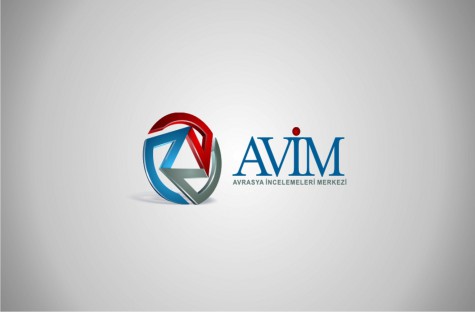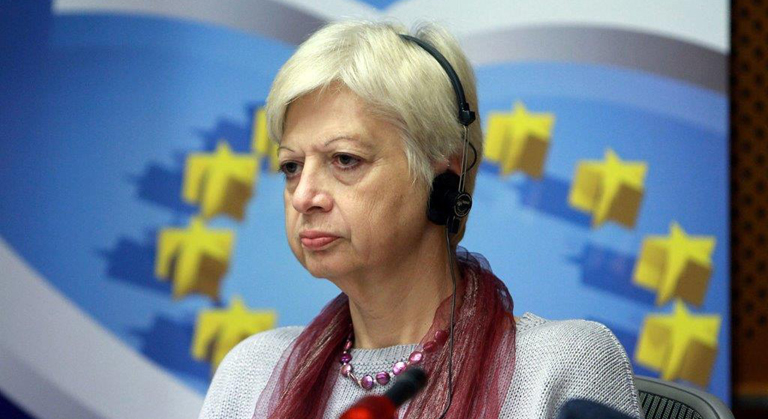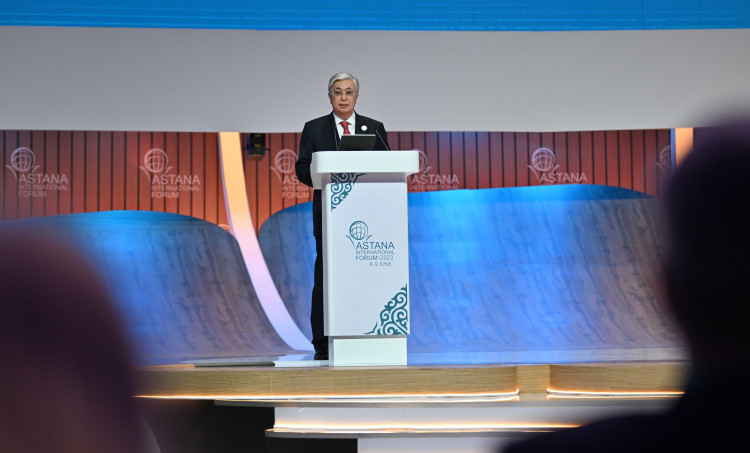
Towards the end of 2016, the CIA (Central Intelligence Agency) released on the internet declassified documents revealing the cooperation between ASALA (Armenian Secret Army for the Liberation of Armenia) and PKK (Partiya Karkerên Kurdistan – Kurdistan Workers' Party).
It was mentioned earlier by AVİM that this cooperation is not a new development; it is a long-known partnership[1]. It was also mentioned that these newly published documents were reinforcing the already known partnership between the two organizations, which was proven in academic studies[2].
Extremist Kurdish – Armenian groups' relations have not been limited to cooperation of terrorist organizations. Historical relations between the two communities is also discussed in the book titled "The Kurdish Voice in Yerevan Radio" by Zeri İnanç, which was published in Turkish and Kurdish[3]. Kurdish-language broadcast that started in Yerevan Radio in 1955 is the indicator of the relationship and cooperation between the two communities. During the preparations of the book, Zeri İnanç interviewed with Celîlê Celîl, the son of Casimê Celîl who was the first to make broadcasts in Kurdish program on the Armenian Radio. In the interview, it is mentioned that these broadcasts for the Kurds living in Armenia were made to keep the Kurdish language, music, and relations with the Kurds living in Armenia alive.
The broadcasts in Yerevan by Kurds is only one example of close Kurdish – Armenian relations throughout history. Indeed, relations between the two communities go way back. Xaçatur Abovyan, one of the leading names of Armenian literature in the 1800s, conducted research on the Kurds and contributed to the development of the Kurdish language[4]. Abovyan also had some observations about Turkish and Armenian languages. Abovyan mentions that Azerbaijani Turkish is so widespread among Armenians that even women and children can easily understand[5].
According to the newspaper AGOS, Hovsep Orbeli, a Soviet-Armenian academician who led the establishment of the Kurdish department within the Institute of Oriental Studies in St. Petersburg during the Soviet period, was another name that contributed to the development of the Kurdish language in Armenia[6]. In 1968, the Kurdish Department was established in Yerevan State University, which continued its operations until 1980. Again in 1968, at Yerevan State University, Eastern Studies Faculty was established by Professor Georgy Nalbandyan. Today, the Kurdish language is taught in this faculty[7].
The Celîl family had never left the country during the Soviet era due to the Soviet policy. However, after the disintegration of the Soviet Union, the Kurds opened up to the world. Despite the declining interest towards Kurdish broadcasts on Yerevan radio, the dengbejs[8] and musicians were brought from the villages for broadcasts and Kurdish-language broadcast hours were increased.
In her book, Zeri İnanç also benefitted from the memoirs of Ordîxane Celîl. Ordîxane Celîl is one of the children of Casimê Celîl. In his memoirs, Ordîxane Celîl states that although suffering from his Kurdishness years later, during his years as student in Ankara, Erevan radio awakened the Kurdishness within him and motivated him.[9].
Although Kurdish-Armenian relations have been strengthened via Kurdish-language broadcasts in Yerevan Radio, Vahram Petrosyan, lecturer at Yerevan State University, in a conference at the same university, told that Kurdish-Armenian relations could be divided into three periods. The first period (1878 – 1923) is the period when the Kurdish-Armenian union against the Turks was established. During this period, although it was desired for a long-lasting and durable Kurdish-Armenian cooperation, such cooperation was not achieved. At the conference, Petrosyan emphasized that the Kurds played a role in the destruction of the Ottoman Armenians[10]. Petrosyan described the second period (1923-1991) as the period in which the Kurdish-Armenian cooperation was established in Eastern Turkey. The purpose of this cooperation is to fight against the common enemy. The enemy mentioned here is Turkey. According to Petrosyan, the Kurdish population in the Eastern Turkey is dominant. Finally, from 1991 onwards, Kurdish – Armenian relations have been developing[11]. In this period, different Kurdish organizations have focused their activities towards the Kurdish population in Armenia. Ultimately, the history of close Kurdish – Armenian relations once again reinforces the reality of cooperation between PKK and ASALA against Turkey.
[1] Çağan Elbir, Hazel. “CIA, ASALA ve PKK İşbirliği Belgelerinin Gizliliğini Kaldırdı” http://avim.org.tr/tr/yorum/cıa-asala-ve-pkk-ısbırlıgı-belgelerının-gızlılıgını-kaldırdı-1
[2] Çağan Elbir, Hazel. “CIA, ASALA ve PKK İşbirliği Belgelerinin Gizliliğini Kaldırdı” http://avim.org.tr/tr/yorum/cıa-asala-ve-pkk-ısbırlıgı-belgelerının-gızlılıgını-kaldırdı-1
[3] “Erivan radyosunun Kürtçe yayınını dinlemiş her Kürdün anlatacağı şeyler vardır” http://www.agos.com.tr/tr/yazi/17703/erivan-radyosunun-kurtce-yayinini-dinlemis-her-kurdun-anlatacagi-seyler-vardir
[4] “Erivan radyosunun Kürtçe yayınını dinlemiş her Kürdün anlatacağı şeyler vardır” http://www.agos.com.tr/tr/yazi/17703/erivan-radyosunun-kurtce-yayinini-dinlemis-her-kurdun-anlatacagi-seyler-vardir
[5] Makas, Zeynelâbidin. Bazı Ermeni Alimlerin Türk Dili ve Kültürü Üzerine Samimi İtirafları, http://dergipark.ulakbim.gov.tr/omuefd/article/viewFile/5000117701/5000109188 [Erişim Tarihi: 24 Şubat 2017]
[6] “Erivan radyosunun Kürtçe yayınını dinlemiş her Kürdün anlatacağı şeyler vardır” http://www.agos.com.tr/tr/yazi/17703/erivan-radyosunun-kurtce-yayinini-dinlemis-her-kurdun-anlatacagi-seyler-vardir
[8] Dengbej: Singer. Deng: voice, news., Bej:say. The person who makes it possible for the word to be performed in harmony.
[9] “Erivan radyosunun Kürtçe yayınını dinlemiş her Kürdün anlatacağı şeyler vardır” http://www.agos.com.tr/tr/yazi/17703/erivan-radyosunun-kurtce-yayinini-dinlemis-her-kurdun-anlatacagi-seyler-vardir
[10] Is Armenian-Kurdish Friendship Possible or Not? http://www.ysu.am/news/en/About-Armenian-Kurdish-relations
[11] Is Armenian-Kurdish Friendship Possible or Not? http://www.ysu.am/news/en/About-Armenian-Kurdish-relations
© 2009-2025 Center for Eurasian Studies (AVİM) All Rights Reserved
No comments yet.
-
 ASALA WANTS TO HAVE A SAY IN ARMENIAN POLITICS
ASALA WANTS TO HAVE A SAY IN ARMENIAN POLITICS
Hazel ÇAĞAN ELBİR 28.01.2016 -
TWISTED LAW AND DOCUMENTED HISTORY - GEOFFREY ROBERSON'S OPINION ON GENOCIDE AGAINST PROVEN FACTS
Hazel ÇAĞAN ELBİR 30.11.2013 -
 A VISIT FROM THE EUROPEAN PARLIAMENT TO THE SO-CALLED STATE IN NAGORNO – KARABAKH UNDER OCCUPATION
A VISIT FROM THE EUROPEAN PARLIAMENT TO THE SO-CALLED STATE IN NAGORNO – KARABAKH UNDER OCCUPATION
Hazel ÇAĞAN ELBİR 23.10.2018 -
 THE NEW PRESIDENT OF THE EUROPEAN PARLIAMENT AND EUROPE'S FREEDOM VALUES
THE NEW PRESIDENT OF THE EUROPEAN PARLIAMENT AND EUROPE'S FREEDOM VALUES
Hazel ÇAĞAN ELBİR 11.02.2022 -
 COMMON SENSE HAS WON: CALIFORNIA GOVERNOR DENIED THE PAROLE OF SASSOUNIAN
COMMON SENSE HAS WON: CALIFORNIA GOVERNOR DENIED THE PAROLE OF SASSOUNIAN
Hazel ÇAĞAN ELBİR 17.05.2017
-
 ARMENIAN LEGAL ATTEMPTS ARE FUTILE
ARMENIAN LEGAL ATTEMPTS ARE FUTILE
Aslan Yavuz ŞİR 27.02.2017 -
 DISPLAYING THE ‘NEW KAZAKHSTAN’ IN THE GLOBAL POLITICAL SYSTEM: THE ASTANA INTERNATIONAL FORUM
DISPLAYING THE ‘NEW KAZAKHSTAN’ IN THE GLOBAL POLITICAL SYSTEM: THE ASTANA INTERNATIONAL FORUM
Turgut Kerem TUNCEL 13.06.2023 -
 “MONTENEGRO AND THE BALKANS” MEETING ORGANIZED BY AVIM AND ANKARA UNI. CENTER OF INTERNATIONAL ECONOMIC AND POLITICAL RESEARCH
“MONTENEGRO AND THE BALKANS” MEETING ORGANIZED BY AVIM AND ANKARA UNI. CENTER OF INTERNATIONAL ECONOMIC AND POLITICAL RESEARCH
Hande Apakan 17.03.2015 -
 APPROACHING EARLY ELECTIONS IN ARMENIA
APPROACHING EARLY ELECTIONS IN ARMENIA
Tutku DİLAVER 18.06.2021 -
 THE ISSUE OF MINE MAPS
THE ISSUE OF MINE MAPS
Tuğçe TECİMER 21.02.2024
-
25.01.2016
THE ARMENIAN QUESTION - BASIC KNOWLEDGE AND DOCUMENTATION -
12.06.2024
THE TRUTH WILL OUT -
27.03.2023
RADİKAL ERMENİ UNSURLARCA GERÇEKLEŞTİRİLEN MEZALİMLER VE VANDALİZM -
17.03.2023
PATRIOTISM PERVERTED -
23.02.2023
MEN ARE LIKE THAT -
03.02.2023
BAKÜ-TİFLİS-CEYHAN BORU HATTININ YAŞANAN TARİHİ -
16.12.2022
INTERNATIONAL SCHOLARS ON THE EVENTS OF 1915 -
07.12.2022
FAKE PHOTOS AND THE ARMENIAN PROPAGANDA -
07.12.2022
ERMENİ PROPAGANDASI VE SAHTE RESİMLER -
01.01.2022
A Letter From Japan - Strategically Mum: The Silence of the Armenians -
01.01.2022
Japonya'dan Bir Mektup - Stratejik Suskunluk: Ermenilerin Sessizliği -
03.06.2020
Anastas Mikoyan: Confessions of an Armenian Bolshevik -
08.04.2020
Sovyet Sonrası Ukrayna’da Devlet, Toplum ve Siyaset - Değişen Dinamikler, Dönüşen Kimlikler -
12.06.2018
Ermeni Sorunuyla İlgili İngiliz Belgeleri (1912-1923) - British Documents on Armenian Question (1912-1923) -
02.12.2016
Turkish-Russian Academics: A Historical Study on the Caucasus -
01.07.2016
Gürcistan'daki Müslüman Topluluklar: Azınlık Hakları, Kimlik, Siyaset -
10.03.2016
Armenian Diaspora: Diaspora, State and the Imagination of the Republic of Armenia -
24.01.2016
ERMENİ SORUNU - TEMEL BİLGİ VE BELGELER (2. BASKI)
-
AVİM Conference Hall 24.01.2023
CONFERENCE TITLED “HUNGARY’S PERSPECTIVES ON THE TURKIC WORLD"









